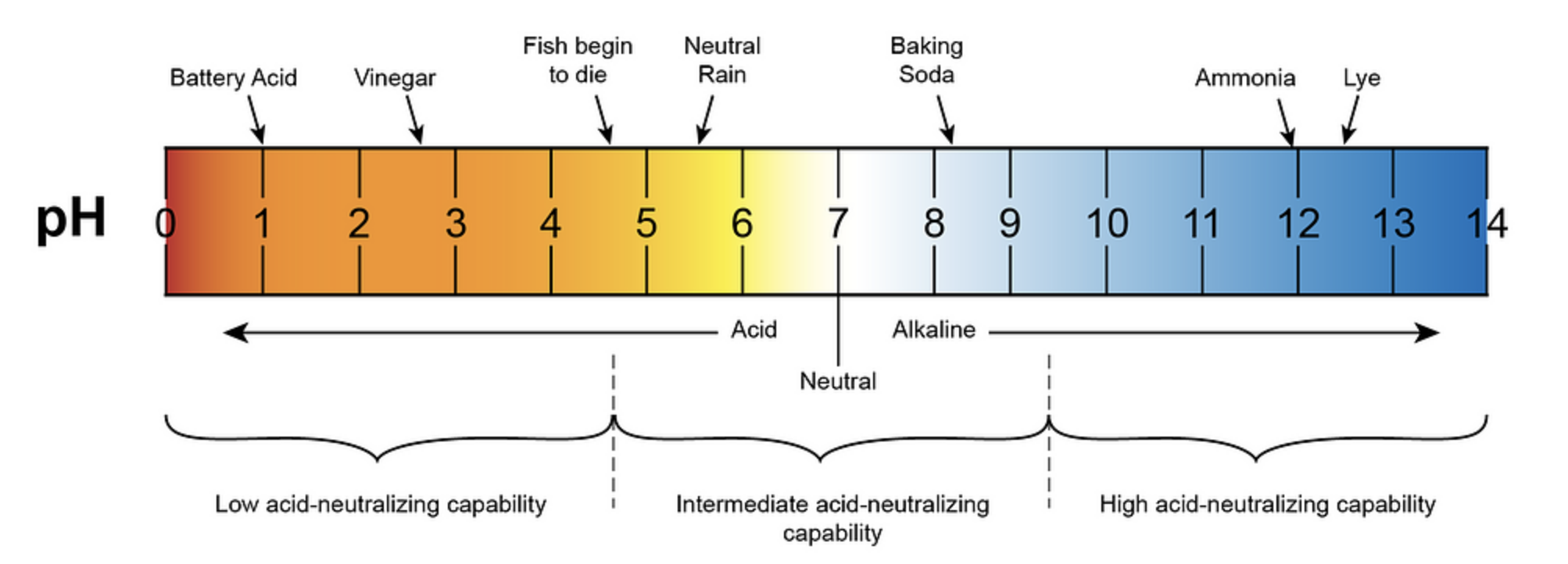The pH of a solution of ammonium nitrate (NH4NO3) in water is slightly acidic, typically ranging from 4.95 to 4.97 for common concentrations. This is due to the dissociation of ammonium nitrate into its constituent ions, NH4+ and NO3-, and the subsequent hydrolysis of the NH4+ ion, which releases hydrogen ions (H+) into the solution, lowering the pH.
Understanding the pH of Ammonium Nitrate in Water
Ammonium nitrate is a salt formed from the neutralization of the weak base ammonia (NH3) and the strong acid nitric acid (HNO3). When dissolved in water, ammonium nitrate dissociates into its constituent ions:
NH4NO3 → NH4+ + NO3-
The ammonium ion (NH4+) can then undergo hydrolysis, releasing hydrogen ions (H+) into the solution:
NH4+ + H2O ⇌ NH3 + H+
This process lowers the pH of the solution, making it slightly acidic.
Factors Affecting the pH of Ammonium Nitrate in Water
The exact pH of a solution of ammonium nitrate in water depends on several factors:
-
Concentration: The pH of the solution is influenced by the concentration of ammonium nitrate. For a 0.20 M solution, the pH is approximately 4.97, while for a 0.185 M solution at 25 degrees Celsius, the pH is around 4.95.
-
Impurities and Contaminants: Any impurities or contaminants present in the ammonium nitrate or the water used to prepare the solution can affect the pH. For example, if the ammonium nitrate contains impurities that can act as acids or bases, this can alter the pH of the solution.
-
Temperature: The pH of the solution may also be influenced by temperature, as the equilibrium between the NH4+ ion and the released H+ ion can shift with changes in temperature.
Balancing the pH of Ammonium Nitrate in Water
To balance the pH of a solution of ammonium nitrate in water, you can add a base or an acid to the solution:
-
Raising the pH: If the pH is too low (acidic), you can add a base, such as sodium hydroxide (NaOH), to raise the pH.
-
Lowering the pH: If the pH is too high (basic), you can add an acid, such as hydrochloric acid (HCl), to lower the pH.
Home remedies for balancing the pH of a solution of ammonium nitrate in water include using common household items like baking soda (sodium bicarbonate, NaHCO3) or vinegar (acetic acid, CH3COOH). Baking soda is a base and can be used to raise the pH of an acidic solution, while vinegar is an acid and can be used to lower the pH of a basic solution.
Conclusion
In summary, the pH of a solution of ammonium nitrate in water is slightly acidic, typically ranging from 4.95 to 4.97 for common concentrations. This is due to the dissociation of ammonium nitrate and the subsequent hydrolysis of the ammonium ion, which releases hydrogen ions into the solution. The exact pH can be influenced by factors such as concentration, impurities, and temperature. To balance the pH, you can add a base or an acid to the solution, using common household items like baking soda or vinegar.
References:
– Socratic.org – What is the pH of a 0.20 M NH4NO3 solution?
– Homework Study – Ammonium Nitrate (NH4NO3) is a salt formed from the neutralization of the weak base ammonia with the strong acid nitric acid. Given that the value of Kb for ammonia is 1.8 x 10^-5, what is the pH of a 0.185 M solution of ammonium nitrate at 25 degrees Celsius?
– Chemical Forums – What is the pH of a 0.20 M solution of ammonium nitrate (NH4NO3) in water?

